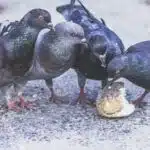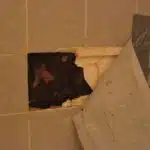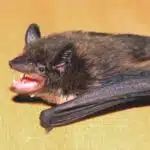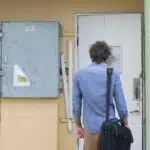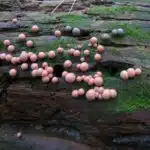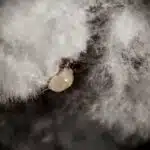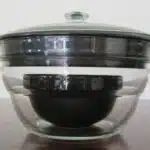In the bustling world of industrial kitchens, where precision, hygiene, and safety are paramount, an unlikely intruder can pose a significant threat. Pigeons, often associated with urban environments, have the potential to contaminate industrial kitchens and compromise the integrity of food preparation. In this article, we embark on a journey to unravel the menace of pigeons and explore how their presence can lead to contamination in these critical food production spaces. From understanding the behaviors of pigeons to exploring the risks they pose and implementing effective preventive measures, we delve into the intricate relationship between these feathered creatures and industrial kitchens.
The Curious Case of Pigeons
Pigeons, also known as rock doves (Columba livia), have long been a familiar sight in cities and urban environments. With their distinctive cooing calls and graceful flight, they have become an integral part of our urban landscape. However, their presence in industrial kitchen areas can have dire consequences for food safety and hygiene.
A Peculiar Set of Behaviors
Understanding the behaviors of pigeons is crucial in comprehending how they can contaminate an industrial kitchen. Pigeons are opportunistic feeders, drawn to areas where they can scavenge for food. Their agility and adaptability enable them to navigate various urban settings, including rooftops, ledges, and ventilation systems, ultimately finding their way into commercial kitchens.
The Nature of Nuisance
While pigeons may seem harmless at first glance, their droppings and behaviors present a range of issues. Pigeon droppings, also known as guano, contain bacteria, parasites, and fungi that can pose health risks to humans if not properly managed. Additionally, pigeons may carry ectoparasites such as fleas, mites, and ticks, further exacerbating the potential for contamination.
The Risks of Pigeon Contamination
The presence of pigeons in an industrial kitchen can introduce various risks, compromising the safety and quality of food production. Let us explore some of the key risks associated with pigeon contamination.
Foodborne Illnesses
Pigeon droppings can harbor bacteria such as Salmonella, Campylobacter, and E. coli, all of which are potential causes of foodborne illnesses. In an industrial kitchen, where large quantities of food are prepared and handled, the introduction of these pathogens can lead to widespread outbreaks and pose a serious threat to public health.
Contamination of Food and Surfaces
Pigeon droppings, when left unattended, can contaminate food, utensils, and food preparation surfaces. The microscopic organisms present in the droppings can transfer onto these surfaces, increasing the risk of cross-contamination and compromising the safety of the food being prepared.
Damage to Infrastructure and Equipment
Pigeons can cause damage to infrastructure and equipment within an industrial kitchen. Their nesting activities may lead to blockages in ventilation systems, posing fire hazards and affecting the proper functioning of HVAC systems. Additionally, their droppings can corrode metal surfaces, leading to structural damage and potentially compromising the integrity of food storage areas.
Preventive Measures: Navigating the Path to Protection
Prevention is key when it comes to mitigating the risks of pigeon contamination in an industrial kitchen. Implementing effective measures to deter pigeons and maintain a clean and hygienic environment is essential. Let us explore some preventive measures that can help safeguard industrial kitchens.
Bird Deterrent Systems
Installing bird deterrent systems can effectively discourage pigeons from entering industrial kitchen areas. These systems can include physical barriers such as bird spikes, netting, and wire mesh to deny access to nesting sites. Electronic deterrents, such as ultrasonic devices or visual repellents, can also be employed to disrupt pigeons’ behavior and discourage their presence.
Regular Cleaning and Sanitization
Maintaining a rigorous cleaning and sanitization routine is crucial in preventing pigeon contamination. Regularly cleaning surfaces, equipment, and ventilation systems can help remove pigeon droppings and minimize the risk of bacterial transfer. Using appropriate cleaning agents and following industry best practices is essential to ensure thorough sanitation.
Proper Waste Management
Proper waste management is a critical aspect of preventing pigeon contamination. Ensuring the proper disposal of food waste and maintaining tightly sealed garbage bins can minimize the attraction of pigeons to the area. Promptly removing any spilled or discarded food can further deter pigeons from foraging in the vicinity.
Regular Inspections and Maintenance
Conducting regular inspections of the industrial kitchen area can help identify potential entry points or nesting sites for pigeons. Promptly addressing any structural issues, such as gaps, holes, or damaged ventilation systems, can prevent pigeons from gaining access and nesting within the facility. Regular maintenance of infrastructure and equipment is also crucial in preventing damage caused by pigeons.
Employee Education and Training
Educating and training kitchen staff on the importance of maintaining a clean and pigeon-free environment is vital. Emphasizing the risks associated with pigeon contamination, providing guidance on proper waste management, and encouraging vigilance in identifying potential signs of pigeon presence can empower employees to actively contribute to a safe and hygienic workplace.
A Safe Haven: Protecting the Integrity of Industrial Kitchens
As we conclude our exploration of how pigeons can contaminate an industrial kitchen, we are reminded of the importance of proactive measures in ensuring the safety and integrity of food production. By understanding the behaviors of pigeons, recognizing the risks they pose, and implementing effective preventive measures, industrial kitchens can minimize the potential for contamination and maintain the highest standards of hygiene. With a combination of awareness, diligence, and strategic planning, the menace of pigeon contamination can be unraveled, ensuring that industrial kitchens remain a safe haven for culinary excellence and the preparation of wholesome meals.




